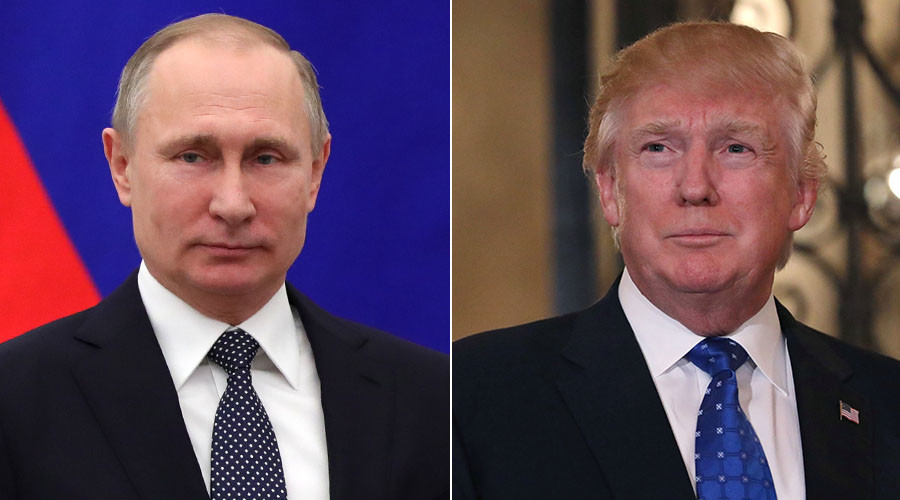Trump and Putin, the stage is set
July 4, 2017 | Expert Insights

It’s the meeting that has the international community waiting for in bated breath. US President Donald Trump will finally be having a face-to-face meeting with Russian President Vladimir Putin.
While Trump himself has said relatively positive things about his perception of Putin, ties between US and Russia are currently tense. Trump himself is facing immense opposition back home for his perceived closeness to Russia.
Background
Russian Federation is the successor state to the Soviet Union. Before its dissolution, Soviet Union and the US were the key factions in world politics. While they were briefly allies during the World War II, by the end of the war, they had become hostile. Brewing mistrust was one of the main reasons for the Cold War.
The Cold War, which lasted from 1947 to 1991, found much of the world divided into the Western Bloc (United States and its allies) and the Eastern Bloc (Soviet Union and its allies). A few countries that wanted to remain separate formed the Non-Alignment Movement of which India was a founding member.
There was the deadly arms race between the nations as well as the space race. Both countries were worried about the threat of nuclear warfare. They also fought battles indirectly through other nations – for example the war between North and South Korea. The Bay of Pigs invasion in 1961 and the Cuban missile crisis followed. The Vietnam war and the Afghanistan war was considered a proxy for the Cold War.
The end of Cold War and the dissolution of Soviet Union (as well as the creation of Russia) seemingly brought an end to a period of uncertainty and turmoil. Relations even improved between the two nations during the tenure of Russia's President Boris Yeltsin but it took a significant step back under Putin.
Ukraine and Crimea
Since 2011, there have been increased tensions between Russia and the US. Some experts have even compared it to the relations during Cold War. It escalated in 2014 when the Viktor Yanukovych government collapsed in 2014. In March 2014, Russia annexed Crimea. It cited a controversial referendum for doing so. As a result Barack Obama and his EU allies unveiled a co-ordinated set of sanctions against Russia and ordered it to leave Crimea. Russia responded with counter-sanctions. THe relationship went on a downward spiral in 2016 during the US elections.
Interference in the US elections
The consensus amongst the intelligence community in the US is that members from the Russian government interfered with the US elections to destabilize the presidential bid of former US Secretary of State, Hillary Clinton. It has also been reported that the Russian government tried to disrupt Clinton’s campaign through cyberattacks and email leaks and largely favoured Donald Trump over her. In January 2017, before he stepped from the office of the US Presidency, Obama imposed fresh sanctions of Russia and ejaculated certain Russian diplomats from the country.
Trump’s Russia problem
In March 2017, the then-FBI director, James Comey noted that the agency was investigating about possible links between Russian government and Trump campaign aides. There is now an investigation by the US Department of Justice (DoJ) looking into whether or not members of the Trump campaign colluded with Russia. Information was also further leaked that Trump, him is being investigated for obstruction of justice by the special counsel that is conducting these investigations. If found guilty, there will be severe repercussions for Trump’s presidency.
Assessment
Our assessment is that it will be prudent for US and Russia to ensure the current tensions do not escalate any further. There are a number of conflict ridden regions whose stability will be at stake. For instance, US has taking military action against the Syrian government and the Syrian government is being supported by Russia. In fact, Russia issued a staunch warning after the US downed a Syrian warplane in June 2017. Middle East is also currently going through a geopolitical turmoil and both these countries have vested interests in the region. An all-out war between the two could be devastating. After all, there are 15,000 nukes in the world and most are stockpiled in the US and Russia.
Perhaps the need of the hour is genuine dialogue between the nations. Both view ISIS as a civilization threat and they can work together to counter this. But is that what Putin or Trump want? The stage has been set.








Comments